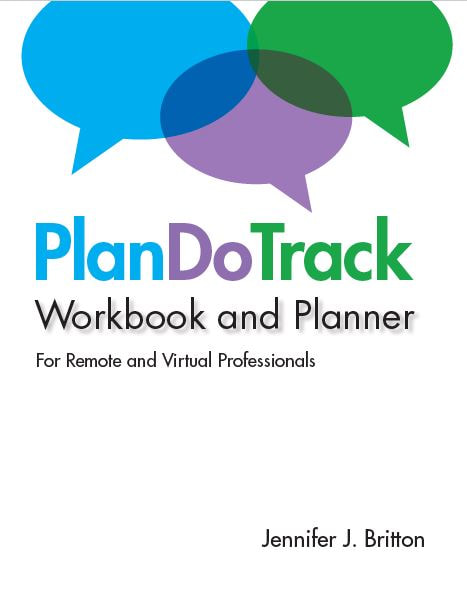|
Collaboration and partnership help us magnify and scale our impact. At least as long as the partnership or collaboration works. Strong partnerships are grounded in a shared vision for the work you are doing together, with clear roles, and usually shared agreements on how you want to work, address issues, and adjust as necessary. While it may be appealing to come together and just wing it, taking some time to design your partnership can be of service to both of you, as well as the people you serve. Before you go to launch a new program you co-facilitate, or partner with new team members, consider these questions:
What other areas do you want to design together as you go to work together? For more on this topic, download a digital chapter I wrote with Effective Group Coaching. You can download the digital chapter here. (use code 4411). There you will find 3 other digital chapters including one on marketing group and team coaching, and two separate case study elements. Be sure to download them today. Enjoy the conversations! Jennifer Jennifer Britton - Potentials Realized
Author of PlanDoTrack (2019), Coaching Business Builder (2018), Effective Virtual Conversations (2017) and From One to Many: Best Practices for Team and Group Coaching (2013). Pick up a copy of any of her books at Amazon. Book Jennifer for a coaching session to explore productivity, teamwork and business issues. Contact her by phone at (416)996-8326 Check out these Instagram accounts @coachingbizbuilder & @remotepathways! Check out upcoming programs on our calendar! Are you a remote professional? Listen into the Remote Pathways Podcast on your favorite podcast player!
0 Comments
While collaboration is something we want to aspire to, what can get in the way? Today’s post picks up with some of the barriers to collaboration I covered in this 2018 Teams365 Blog post. "Politeness is the poison of collaboration." - Edwin Land “Let’s collaborate more” is commonly heard in organizations, and it may be easier said than done. As part of our February posts around collaboration, today’s post explores six barriers to collaboration, along with some possible ways to address these topics. The six barriers we are going to explore in today’s blog post are:
Barrier #1 – Ego. One of the biggest barriers which can get in the way of collaboration is our ego. In collaboration it is important to “park our ego” as much as possible so that we can truly be listening and hearing for what is needed to really synergize. Another commonly used term for parking our ego is “becoming unattached”. When we become too attached to our end result, we may not hear or see possibilities which will actually end with a greater end result. Barrier #2 – Power. When power differentials are too different it can be very difficult to collaborate. In those instances where one group/person may have more “power” whether due to resourcing, or information, it is important to design the boundaries of collaboration and be clear with intent. Barrier #3 - Lack of candor. Candor is defined as “the quality of being open and honest in expression; frankness” in the Oxford Dictionary. Candor is a critical ingredient for collaboration. Without it there will be a lot of wasted effort, and the true essence of collaboration will not be possible. Being able to share ideas without concern for judgement, the ability to be frank and open with feedback are all essential ingredients for collaboration. Barrier #4 - Inability to work across differences. In collaboration synergies, and differences, are usually harnessed. The ability to work across differences, making changes with one’s own style, is another essential ingredient for collaboration. Barrier #5 - Different end goals. When end goals are too different it can be very difficult to have collaboration. For example, if one member is aiming for an end result that is about quality and the other solely on speed, it may be more challenging to find the middle ground amongst the two. In these instances, the end result needs to become an AND rather than an OR. So, A AND B, rather than A OR B. Barrier #6 - Lack of trust. The one essential which will usually arrest collaboration before it starts is lack of trust. When trust is low, or non-existent, it is difficult to collaborate. Collaboration requires honesty, feedback, listening, candor, and bringing your best work to the table, in service to something greater. When trust is low or non-existent, these skills are usually not present. As you consider your upcoming collaboration, how are you doing with these ingredients? What do you see as getting in the way of your conversations? Enjoy your conversations! Jennifer Jennifer Britton - Potentials Realized
Author of PlanDoTrack (2019), Coaching Business Builder (2018), Effective Virtual Conversations (2017) and From One to Many: Best Practices for Team and Group Coaching (2013). Pick up a copy of any of her books at Amazon. Book Jennifer for a coaching session to explore productivity, teamwork and business issues. Contact her by phone at (416)996-8326 Check out these Instagram accounts @coachingbizbuilder & @remotepathways! Check out upcoming programs on our calendar! Are you a remote professional? Listen into the Remote Pathways Podcast on your favorite podcast player! We often talk about collaboration as something we aspire to, or want to do more of, but what are the things we need to ensure we DO In order to have successful collaboration. For today’s post, I am reaching back to a Teams365 blog post, a daily blog I have hosted since 2014. As I shared in Teams365 Blog post #506 – Four Essential Ingredients for Collaboration: 1. Be clear on why you are collaborating. Collaborating for collaboration's sake does not equal success! Why is this collaboration occurring? What is possible due to the fusion of your skills and abilities? What outcomes are you looking for? Partnerships and collaboration are not always a straight road. It's important to be clear on:
2. Consciously design your partnership Take time to intentionally, or consciously, design your partnership. Building in time for focusing on the relationship can be as important as creating or doing the work together. In a recent newsletter article I shared several of the partnership planning questions I have written about over the years. In my writing I talk about at least four stages where you will want to focus conversation - pre-program/partnership, at the start, during the work and at the end of major projects. Refer to chapter 12 of Effective Virtual Conversations or Chapter 11 of From One to Many: Best Practices for Team and Group Coaching. 3. Regularly check in and adjust. Regular check ins will look different for each project. Ask yourselves regular questions such as:
4. Consider what end result you have in mind - As Steven Covey wrote years ago "Start with the end in mind". Our end result shapes our action. As you engage in every conversation think about the end result you are aiming for. How does this influence your partnership? What roles you play? What attention you have? These four factors - clarity, conscious design, check in, and end in mind - support partnering and collaboration to be a flexible, fluid process. What is important for you to consider in your own work? Best wishes, Jennifer Jennifer Britton - Potentials Realized
Author of PlanDoTrack (2019), Coaching Business Builder (2018), Effective Virtual Conversations (2017) and From One to Many: Best Practices for Team and Group Coaching (2013). Pick up a copy of any of her books at Amazon. Book Jennifer for a coaching session to explore productivity, teamwork and business issues. Contact her by phone at (416)996-8326 Check out these Instagram accounts @coachingbizbuilder & @remotepathways! Check out upcoming programs on our calendar! Are you a remote professional? Listen into the Remote Pathways Podcast on your favorite podcast player! 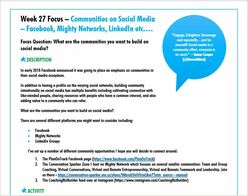 Week 27 Focus – Communities on Social Media – Facebook, Mighty Networks, LinkedIn etc.… Focus Question: What are the communities you want to build on social media? Description In early 2018 Facebook announced it was going to place an emphasis on communities in their social media ecosystem. In addition to having a profile on the varying social networks, building community intentionally on social media has multiple benefits including cultivating connection with like-minded people, sharing resources with people who have a common interest, and also adding value to a community who can refer. What are the communities you want to build on social media? There are several different platforms you might want to consider including:
Activity Consider what community you might want to spearhead in social media.
What content would you populate your new community on social media with? Consider material you have created, go-to resources from others, and polls to find out what people want. Consider dedicating each day to a different theme: Throwback Thursday, Motivation Monday… Connection to the Workbook and Planner Use the Content Daily Trackers, and Content Brainstorm to identify key content you are sharing or plan to share. Download a one-page copy of this week's 52 Weeks of Plan, Do and Track here. Best wishes, Jennifer Read and download the initial weeks of the 52 weeks of Plan, Do and Track Jennifer Britton - Potentials Realized
Author of PlanDoTrack (2019), Coaching Business Builder (2018), Effective Virtual Conversations (2017) and From One to Many: Best Practices for Team and Group Coaching (2013). Pick up a copy of any of her books at Amazon Book Jennifer for a coaching session to explore productivity, teamwork and business issues. Contact her by phone at (416)996-8326 Follow the #90DaysPlanDoTrack series on Instagram We operate as part of a larger web. As Buddha wrote: “As a net is made up of a series of ties, so everything in this world is connected by a series of ties. If anyone thinks that the mesh of the net is an independent isolated thing he is mistaken. It is called a net because it is made up of a series of interconnected meshes, and each mesh has its place and responsibility in relation to other meshes.”
Even as solopreneurs or someone working remote we are a bigger part of a web. Being clear on how we connect and interrelate can help us be more focused and intentional in our messaging, marketing and communication. This week take some time to draw out your web of relationships.
Have a great Wednesday! Jennifer Jennifer Britton - Potentials Realized
Check out the Weekly Planning Hack Facebook Live each Wednesday or Thursday here. Be sure to like our page to be updated each week! Author of PlanDoTrack (2019), Effective Virtual Conversations (2017) and From One to Many: Best Practices for Team and Group Coaching (2013) Over the last month we’ve been exploring different skills and practices for virtual professionals. This week’s post focuses in on five people virtual team members need in their network. Given the more autonomous role of the virtual and remote employee, five people virtual team members will want to make sure they have strong relationships with, are:
Best, Jennifer Jennifer Britton - Potentials Realized
Author of PlanDoTrack (2019), Coaching Business Builder (2018), Effective Virtual Conversations (2017) and From One to Many: Best Practices for Team and Group Coaching (2013). Pick up a copy of any of her books at Amazon Book Jennifer for a coaching session to explore productivity, teamwork and business issues. Contact her by phone at (416)996-8326 Check out the new 19 Productivity Tips on-demand program. Explore this video based program at your own pace, and join Jennifer for bi-weekly calls as part of your course. Follow the #90DaysPlanDoTrack series on Instagram Questions form the backbone to any great coaching conversation. What is the state of questions being asked in your team? While asking informational questions can be of great value, in the virtual team context, we may be in multiple conversations where we are using questions to:
When we operate in the virtual and remote context it usually means that we aren’t having to advise, but rather coach. This can necessitate a different set of questions or a different way to ask questions rather than a Yes/No approach. In creating more powerful questions for the virtual space we want to focus on a few things:
In coaching we usually encourage questions to be:
Best, Jennifer Jennifer Britton - Potentials Realized
Author of PlanDoTrack (2019), Coaching Business Builder (2018), Effective Virtual Conversations (2017) and From One to Many: Best Practices for Team and Group Coaching (2013). Pick up a copy of any of her books at Amazon Book Jennifer for a coaching session to explore productivity, teamwork and business issues. Contact her by phone at (416)996-8326 Check out the new 19 Productivity Tips on-demand program. Explore this video based program at your own pace, and join Jennifer for bi-weekly calls as part of your course. Follow the #90DaysPlanDoTrack series on Instagram 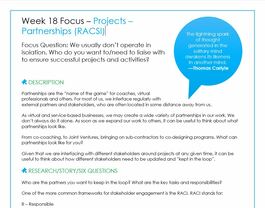 Week 18 Focus – Projects – Partnerships (RACSI) Focus Question: We usually don’t operate in isolation. Who do you want to/need to liaise with to ensure successful projects and activities? Description Partnerships are essential for coaches, virtual professionals and others. For most of us, we interface regularly with external partners and stakeholders, who are often located in some distance away from us. As virtual and service-based businesses, we may create a wide variety of partnerships in our work. We don’t always do it alone. As soon as we expand our work to others, it can be useful to think about what partnerships look like. From co-coaching, to Joint Ventures, bringing on sub-contractors to co-designing programs. What can partnerships look like for you? Given that we are interfacing with different stakeholders around projects at any given time, it can be useful to think about how different stakeholders need to be updated and “kept in the loop”. Research/Story/Six Questions Who are the partners you want to keep in the loop? What are the key tasks and responsibilities? One of the more common frameworks for stakeholder engagement is the RACSI. RACSI stands for: R – Responsible A – Accountable C – Consulted S - Support I – Informed. Let’s look at each one in turn. Responsible = person or role responsible for actually doing or completing the item. Who needs to do the work? This might be the team leader who has to gather the expense information in the new format and submit it. Accountable = The person who is accountable is usually the person responsible for undertaking the task. Who has ownership of this? Typically, the "responsible one" is accountable to this person. The accountable person might be the General Manager, the Team Leader's boss. Consult = the person or role whose subject matter expertise is required in order to complete the item. Consulted - Who needs to be involved and asked for input? Those consulted may involve other team leaders who have gone through the change, and team members. Support = Who needs to support the work? What type of support is required? Inform = the person or role that needs to be kept informed of the status of item completion Who needs to be told about the change or informed along the way? Individuals who are not part of teams may need to be informed so they know what changes are happening. The value of reflecting on a RACSI for each project is that it helps you consider who you want to involve and keep in the loop. Projects sometimes are not successful when they have not engaged different players or stakeholders appropriately. Activity Consider one of your upcoming initiatives/ programs/projects. Who are the key stakeholders? Who is responsible? Who needs to support? Who needs to be consulted? Who needs to be informed? Connection to the Workbook and Planner Any time we bring shareholders on or work closely with a community, or membership site, it can be important to be focusing on the RACSI, as we consider how to communicate our messages. Great partnerships are usually co-designed with intentionality. To help guide you through these conversations, I share a variety of questions to consider at different times of the partnership journey – pre-design, during design, during implementation and after the project. Be sure to also download the Co-Facilitation Chapter. This link is found on page 93 of PlanDoTrack and page 89 of the Coaching Business Builder. Leverage the tools including the Partnership Questions on Pages 93 and 94 of the PlanDoTrack or pages 89 and 90 of the Coaching Business Builder. Download a one-page copy of this week's 52 Weeks of Plan, Do and Track here. Best wishes, Jennifer Read and download the initial weeks of the 52 weeks of Plan, Do and Track Jennifer Britton - Potentials Realized
Author of PlanDoTrack (2019), Coaching Business Builder (2018), Effective Virtual Conversations (2017) and From One to Many: Best Practices for Team and Group Coaching (2013). Pick up a copy of any of her books at Amazon Book Jennifer for a coaching session to explore productivity, teamwork and business issues. Contact her by phone at (416)996-8326 Check out the new 19 Productivity Tips on-demand program. Explore this video based program at your own pace, and join Jennifer for bi-weekly calls as part of your course. Follow the #90DaysPlanDoTrack series on Instagram “It is literally true that you can succeed best and quickest by helping others to succeed.” – NAPOLEON HILL No person operates alone. Relationships are key to our success in business. Our customers can be great advocates of our work. Likewise, fellow professionals may also be a powerful source in sharing the word and testimonial of our work. What time are you dedicating to building, and maintaining, relationships with others? There are several tools included in the Coaching Business Builder and PlanDoTrack Workbook and Planner (for virtual professionals and remote/virtual teams) to help you focus on relationships. From the Top 20 list, to exploring collaboration more intentionally, I hope that you will put more of a focus on relationships this year. Be sure to check out related posts on relationships and business in February 2019 at the Coaching Business Builder blog, as well as relationships and virtual business/teams at the Teams365 blog. Best, Jennifer Jennifer Britton - Potentials Realized
Check out the Weekly Planning Hack Facebook Live each Wednesday or Thursday here. Be sure to like our page to be updated each week! Author of PlanDoTrack (2019), Effective Virtual Conversations (2017) and From One to Many: Best Practices for Team and Group Coaching (2013) It’s likely that your virtual and remote team may not get the support they need. As I often write “Out of sight should not equal out of mind”. In a virtual and remote team, it can be very useful to provide peer support across the team. This might include things such as: Mentoring pairs – If there are certain skills people want to develop, is there a way to create mentoring pairs across the team? Peer partners - A valuable activity can be assigning peer partners across the team on an annual basis. Whether formal, or informal, having a partner people can meet with and ask questions to, can be valuable in sharing learning. Job shadowing – Another interesting, and valuable, experience can be job shadowing virtually, where a more junior person is paired with a more senior team member. They may shadow meetings virtually and learn more about the behind the scenes work experience by co-working virtually. Consider how you might create a “take me to work day”. Formal coffee break/meal sharing time – We learn a lot from each other informally. What are the informal pauses you can create for the team? This might involve coffee breaks where people can drop in for a chat once a week or every few weeks, or a lunch time potluck. Co-working experiences - Where people bring projects they are working on and work together real time on a virtual platform like zoom, checking in at the top of each hour and working for several hour bursts. A session held like this once a month or more frequently can be incredibly valuable in terms of “getting things done” and also supporting learning across the team. What are the different ways you can build in more virtual connection time across the team? This is critical for building your team culture. Wishing you the best, Jennifer Jennifer Britton - Potentials Realized
Author of PlanDoTrack (2019), Coaching Business Builder (2018), Effective Virtual Conversations (2017) and From One to Many: Best Practices for Team and Group Coaching (2013). Pick up a copy of any of her books at Amazon Book Jennifer for a coaching session to explore productivity, teamwork and business issues. Contact her by phone at (416)996-8326 Check out the new 19 Productivity Tips on-demand program. Explore this video based program at your own pace, and join Jennifer for bi-weekly calls as part of your course. Follow the #90DaysPlanDoTrack series on Instagram |
AuthorJennifer Britton is the blogger behind the popular Teams365 blog, a daily,blog for team leaders and members since 2014. Her latest publication is the PlanDoTrack Workbook and Planner. Pick up a copy at Amazon. Pick Up a CopyUpcoming Programs
Join us for the 21 For 21 Virtual Co-working Sprints - $21 US. Want to access the recordings and bonus worksheets? Join us at the Booster Pack $79 US early bird rate. Sign up at 21for21 Virtual Co-working - STAND OUT VIRTUALLY! Stand Out Virtually - Incubator - Running an online, virtual or digital business and want to get the word out to organizations? Join us for the 8 week Stand Out Virtually Incubator. Next group starts April 2021. Build out your brand, offers and proposals. Virtual Facilitation Essentials (8.5 CCEs)- Expand your toolkit for better remote and virtual conversations. This is a virtual train-the-trainer - 5 weeks: Fall 2021 programming starts in October $495 US Learn more and register. Coaches! Register for the 60 Day Coaching Business Builder Accelerator. Join us for 60 Days support and ACTION for coaches wanting to grow their businesses. On-Demand Course. PlanDoTrack Facilitator Training Program (24 CCEs) - Starts again in October. Contact Jennifer to discuss. Month-End/Quarterly Planning Session: Thursday September 30th - 8 -9 am ET Archives
January 2021
Categories
All
|



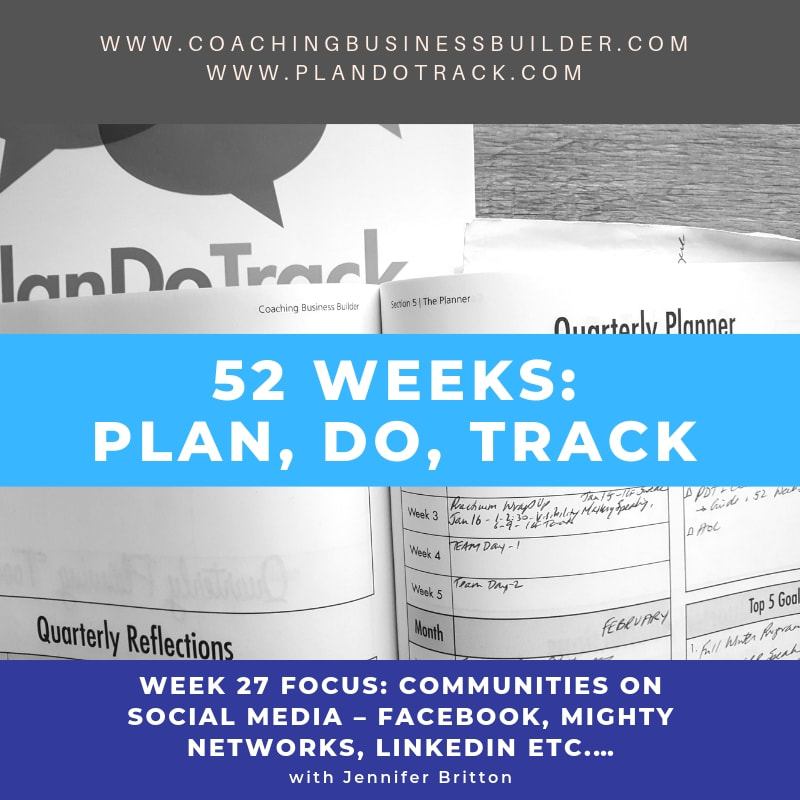
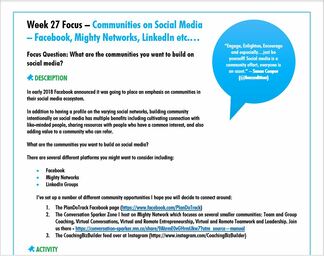

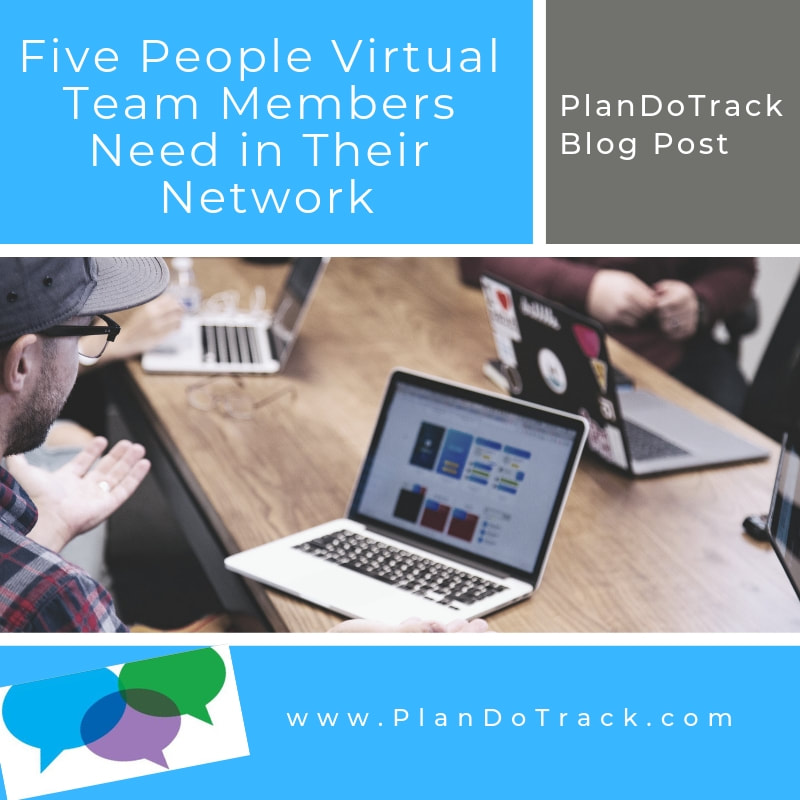
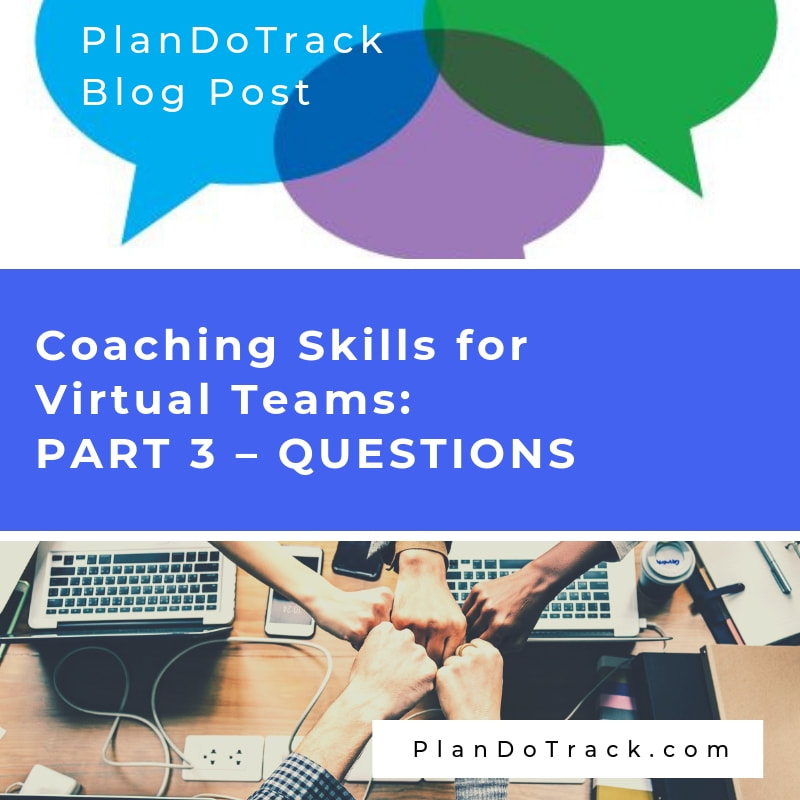
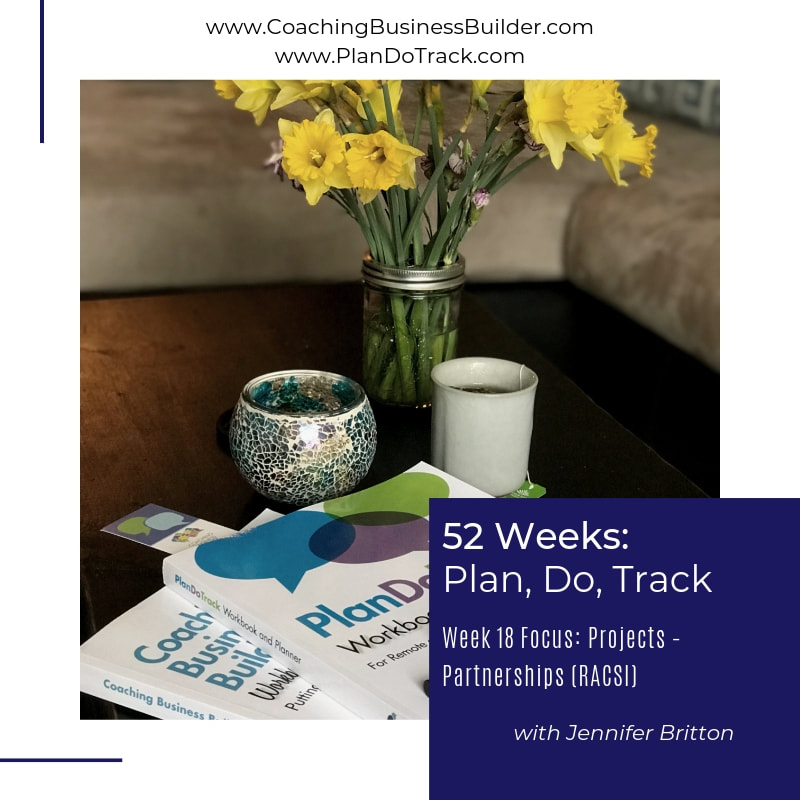
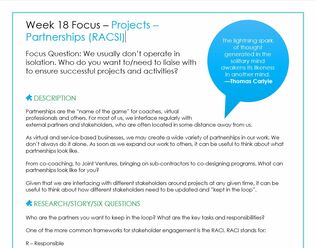
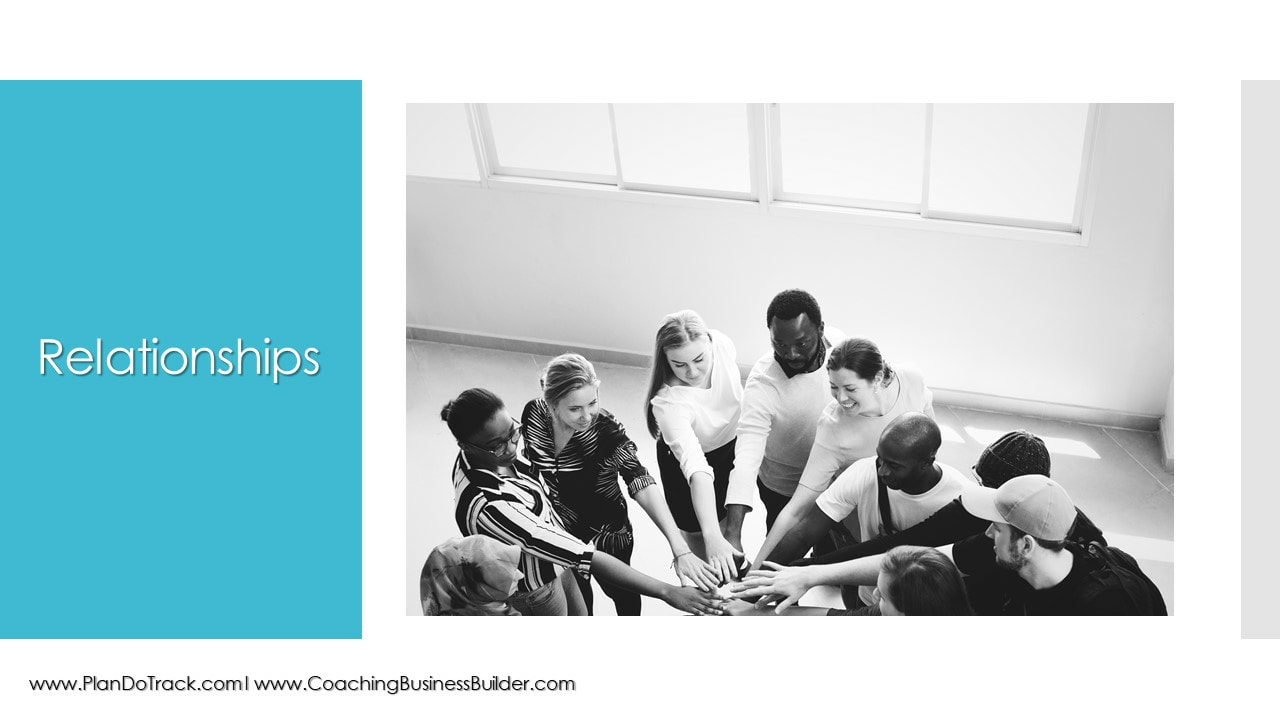

 RSS Feed
RSS Feed
